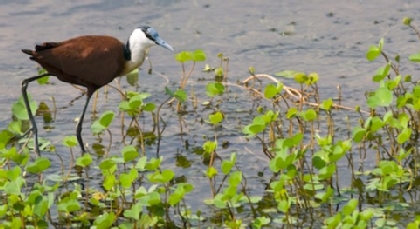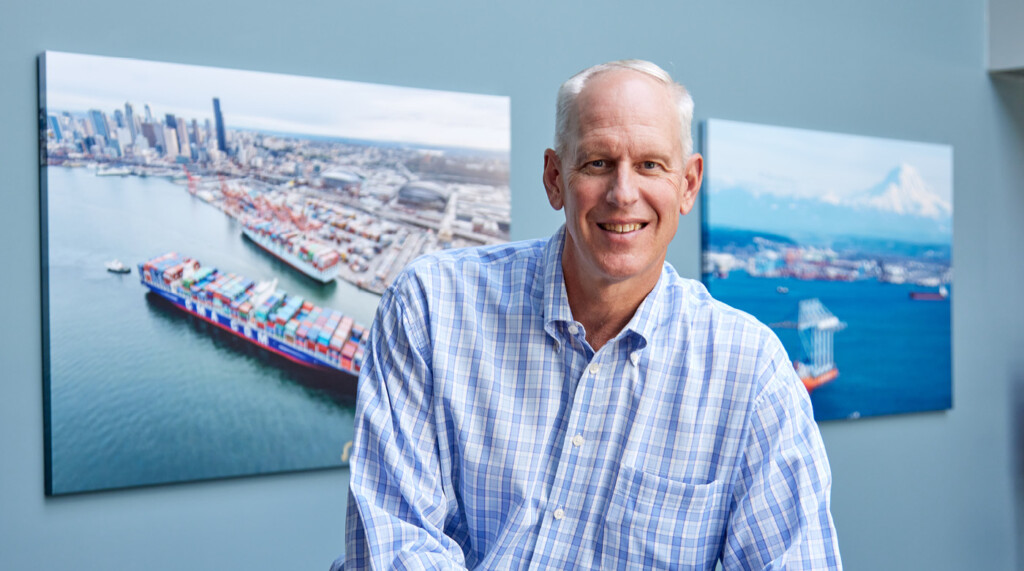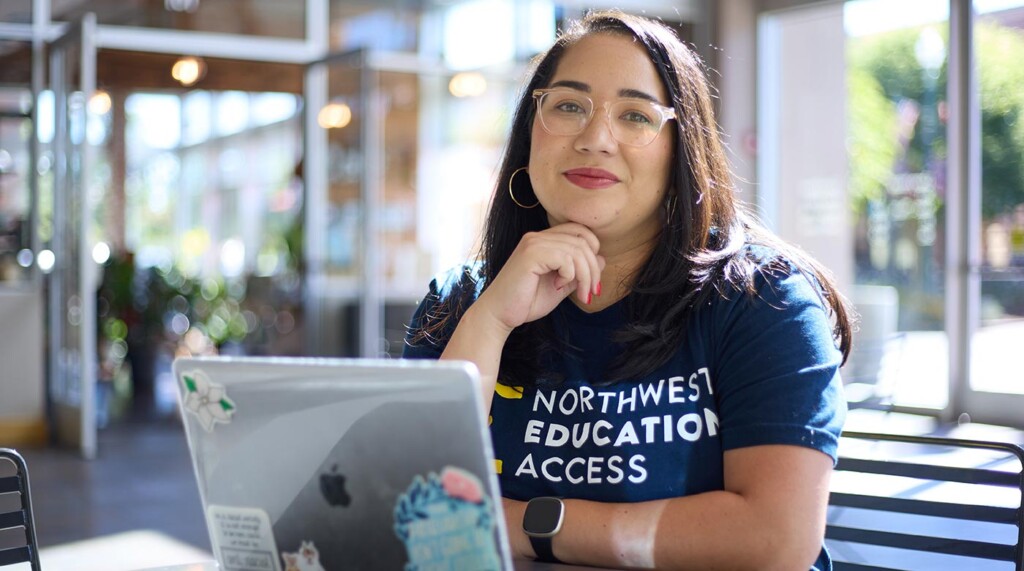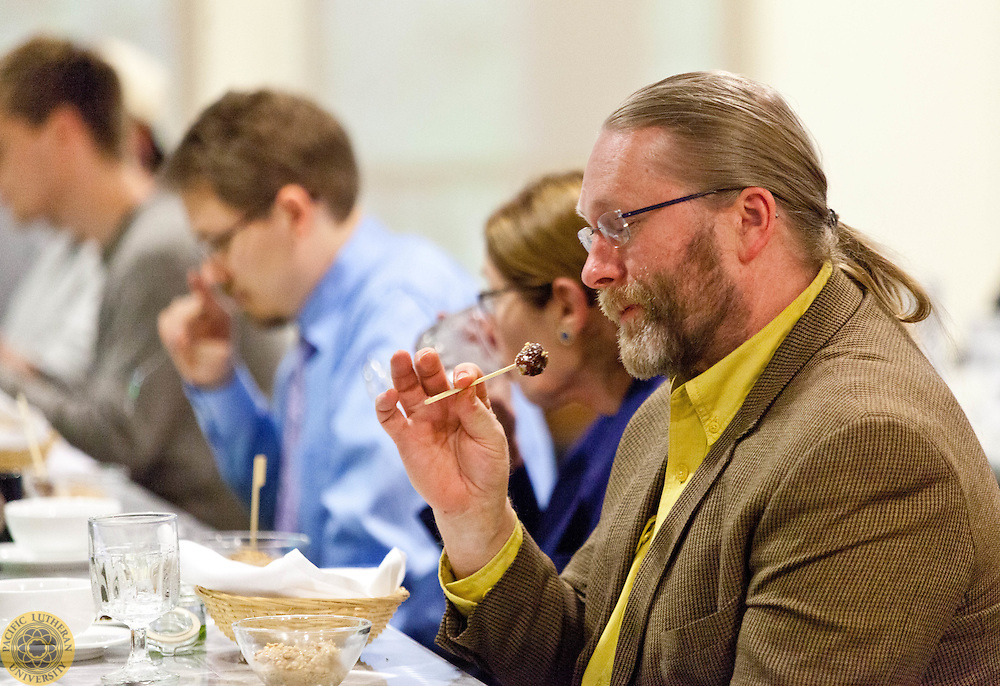Page 62 • (681 results in 0.072 seconds)
-
Perspective – The view through safety goggles Folks around Rieke Science Center – and sometimes in other parts of campus when I’m running late for a meeting – often see me donning a certain accessory that is quintessential to chemists worldwide: safety goggles. We all…
and I do in our experiments actually bears many parallels to cooking. By varying the amounts or types of ingredients, the order we add them to the pot, and the time and temperature we heat or cool them, we work to eventually perfect the finished dish – the target compound. Safety goggles aren’t powerful enough to actually let us see compounds we make. And, unlike the chemists of the early 1900s, we don’t taste our products in the lab anymore, either. We must use special instruments to help us “see
-

Uganda: Murchison Falls Narrative By Theodore Charles ’12 This was originally recorded on the intensely bumpy dirt road back from Murchison Falls to Kampala, a trip that takes approximately five hours depending on the speed of the driver you have, which in our case was…
astounding and threatening. From there we headed to Red Chili camp to be welcomed by tame warthogs and cold bottles of Fanta, which is by far the best beverage to have on hot afternoons anywhere in Uganda. Several warthogs onsite were raised by the innkeepers and are quite fearless. At one point in time I was even nuzzled by one. The next day, after a delicious meal and a nice sleep shrouded under a mosquito net we headed bright and early, 6:15 to be exact, into the savanna of Murchison Falls. Hasan shot
-

UPDATE (10.15.15): Please join the PLU community in dedicating the Carol Sheffels Quigg Greenhouse . A reception and opportunity to explore the greenhouse will follow the dedication ceremony. We hope to see you there! Date: Monday, October 19, 2015 Time: 10:30 a.m. Location: Between Rieke…
Rieke Science Center and Morken Center By Matthew Salzano ’18PLU Marketing & Communications TACOMA, Wash. (March 20, 2015)—Just as spring springs, a new building has begun to peek out from the soil in lower campus: Pacific Lutheran University’s new greenhouse is starting to grow.The 1,700-square-foot, stand-alone Carol Sheffels Quigg Greenhouse is expected to open early to mid-August, with a formal dedication in September 2015. “It’s going to be a wonderful addition to the biology program at PLU by
-

TACOMA, WASH. (Feb. 24, 2016)- Debbie Moderow’s future in Iditarod racing started in her family’s backyard with a retired sled dog named Salt. The 7-year-old Husky was the first member of a backyard sled dog team that was initially assembled so Moderow’s sons could have…
creative nonfiction in PLU’s MFA program from 2010 to 2013. After graduating in August 2013, Moderow gave “Fast into the Night” one last rewrite before sending it to an agent in early February. Moderow was signed within two days and, within a week, her book was sold to publishing company Houghton Mifflin Harcourt. Moderow is currently on a book tour to promote and discuss “Fast into the Night.” She hopes to write more memoirs that reflect on journeys “in the company of other species,” she said, in the
-

TACOMA, WASH. (March. 16, 2016)- Charles Reinmuth ’19 didn’t think twice when he was offered the chance to spend five weeks in the summer getting acclimated to life at Pacific Lutheran University and earning his first six college credits for free. “I couldn’t pass up…
students that have a lot of potential and a lot of desire and interest to do well in college, but are facing obstacles that might prevent them from doing as well at PLU as they could,” said Assistant Professor of Mathematics Ksenija Simic-Muller, who taught a Summer Academy course. “What summer academy tries to do is address (those obstacles) early on by providing more support to these students.” Assistant Professor of Sociology Galen Ciscell, another Summer Academy instructor, strongly endorses the
-

TACOMA, WASH. (Aug. 10, 2016)- When Justin DeMattos ’19 enters his junior year at Pacific Lutheran University in a few weeks, he will be coming off an internship experience that’s out of this world (quite literally). DeMattos, a physics major and computer science minor, traveled…
the science team support the probe. The visualization tool is going to be an orbit plotter that will show the orbit for the probe. How did a sophomore student from the West Coast get an internship with NASA in Maryland? I wanted to apply for something NASA-related since my first year at PLU. My original plan in early high school was to do something business-related because I like math. I always had a soft spot for astronomy. I just didn’t know what I could do with it. I eventually took a physics
-

TACOMA, WASH. (March. 16, 2020) — Pacific Lutheran University political science major Jeremy Knapp ‘21 swears he has no desire to run for office, but his resume speaks of someone with great political aspirations nonetheless. The junior turned 21 on March 4, and he already…
works is you submit a resume, cover letter, personal essay and a few other materials, all to the intern coordinators themselves. The interviews are kind of intense. There’re questions literally built to scare you. Some (senators’) offices go through interviews, but I didn’t have to do that. Sen. Liias’s office picked me. I got a notice early on that I was picked for his office, was really happy about it, and have enjoyed my time here. PLU: What kinds of things have you been doing? Knapp: I’m in
-

When Mark Miller ’88 enrolled at PLU he planned to become a math teacher, but he soon discovered he had a passion for technology and business. He’s followed that passion ever since. His career in information and technology has spanned three decades and included chapters…
your bachelor’s degree at PLU. You’ll have some great knowledge and skills to offer, but you should still be focused on growth. Early in your career, especially, look for jobs that will support that. It will set you up to have lots of options and opportunities down the road. Lute Powered is a project highlighting PLU alumni at some of the most well-known organizations across the Puget Sound region. Mark Miller is the first of three Lutes being featured from the Port of Tacoma and Northwest Seaport
-

While at PLU, Angela Pierce-Ngo ’12 was worried by a troubling pattern. After the first year of college, many peers and friends — especially classmates of color — left school or took an extremely long break. Even as she worked as a diversity advocate and…
-school population or who face significant barriers, such as early parenthood. “How can we support young people that traditional high school doesn’t work for, and continue to support after high school ends?” Pierce asks. “Why are students of color and students with more barriers leaving? How can we continue to provide and do better? Who are we not including, not asking?” Pierce-Ngo started her career providing one-on-one counseling to students who left school, then later moved into other roles that
-

As you know, PLU went through a difficult process of prioritization this year, responding to lower enrollments and seeking to proactively budget for a sustainable future rather than wait until we reached emergency conditions. This led to hard conversations and hard choices, ultimately made by…
understanding ancient literature in regards to sexuality and autonomy and critiques the current systems we have in place of acknowledging sexuality and addressing issues of consent. We are incredibly proud of these and all our other Classics graduates. We regret that this effective, innovative, and valuable program will no longer be available as a major, but we are very happy to be retaining our Classics minor, and a related minor in Early Christian Studies through a partnership with the Religion Department
Do you have any feedback for us? If so, feel free to use our Feedback Form.


